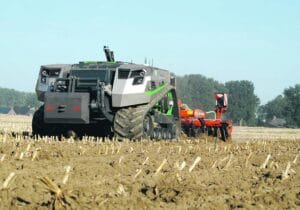As the automotive industry undergoes its most critically important change as the advent of the internal combustion engine, technology companies have emerged as key players in shaping the future of mobility. Electric vehicles (EVs) and autonomous driving technologies are no longer distant concepts but rapidly evolving realities, driven by innovation from both traditional automakers and tech giants. This article examines five technology firms that are at the forefront of this automotive revolution, leading the charge in developing advanced electric powertrains, self-driving algorithms, and integrated mobility solutions that will define how we move in the decades to come. Tesla remains the undisputed frontrunner in electric vehicle technology and autonomous driving capabilities. With its advanced Autopilot system and Full Self-Driving (FSD) beta program, the company continues to collect vast amounts of real-world driving data from its global fleet. Their proprietary battery technology and charging infrastructure have set industry standards, while their AI-driven approach to autonomous vehicles positions them ahead of traditional automakers.
Alphabet’s Waymo has emerged as a formidable force in self-driving technology. Their autonomous driving system has logged millions of miles across multiple cities, demonstrating remarkable reliability and safety records. Waymo’s LiDAR-based approach differs from Tesla’s camera-centric system, offering redundancy and precise environmental mapping capabilities essential for level 4 autonomy.
Apple’s secretive Project Titan has evolved significantly, focusing on both electric vehicle development and autonomous technology. Recent patents and strategic partnerships suggest the tech giant is developing revolutionary battery technology and innovative user interfaces for future vehicles. Their expertise in hardware-software integration and consumer experience could reshape how we interact with vehicles.
NVIDIA has become the backbone of autonomous driving development, providing powerful computing platforms and AI solutions to numerous automakers. Their DRIVE platform enables everything from advanced driver assistance systems to fully autonomous operation. The company’s simulation technology allows manufacturers to test and validate self-driving systems in virtual environments, accelerating development while reducing costs.
Chinese tech giant Baidu has positioned itself as Asia’s leading autonomous driving innovator through its Apollo platform. Their open-source approach has attracted hundreds of global partners, creating an ecosystem that spans hardware, software, and cloud services. Baidu’s robotaxi service operates in multiple Chinese cities, demonstrating practical applications of their technology in real-world conditions.
These companies are investing heavily in artificial intelligence, machine learning, and sensor technologies. Their competition drives innovation in battery efficiency, charging solutions, and safety systems. Tesla’s direct-to-consumer approach contrasts with Waymo’s B2B strategy, while Apple’s potential market entry could revolutionize personal transportation.Each firm brings unique strengths: Tesla’s vertical integration and data advantage, Waymo’s proven safety record, Apple’s user experience expertise, NVIDIA’s computing power, and Baidu’s collaborative ecosystem. Their diverse approaches to solving autonomous driving challenges create a robust innovation landscape.These technological advancements are reshaping urban planning, energy infrastructure, and transportation networks. Cities are adapting to accommodate electric charging stations and preparing for autonomous vehicle integration.The competition between these tech giants accelerates the transition from traditional vehicles to lasting, autonomous transportation solutions, fundamentally changing how people and goods move around the globe.












